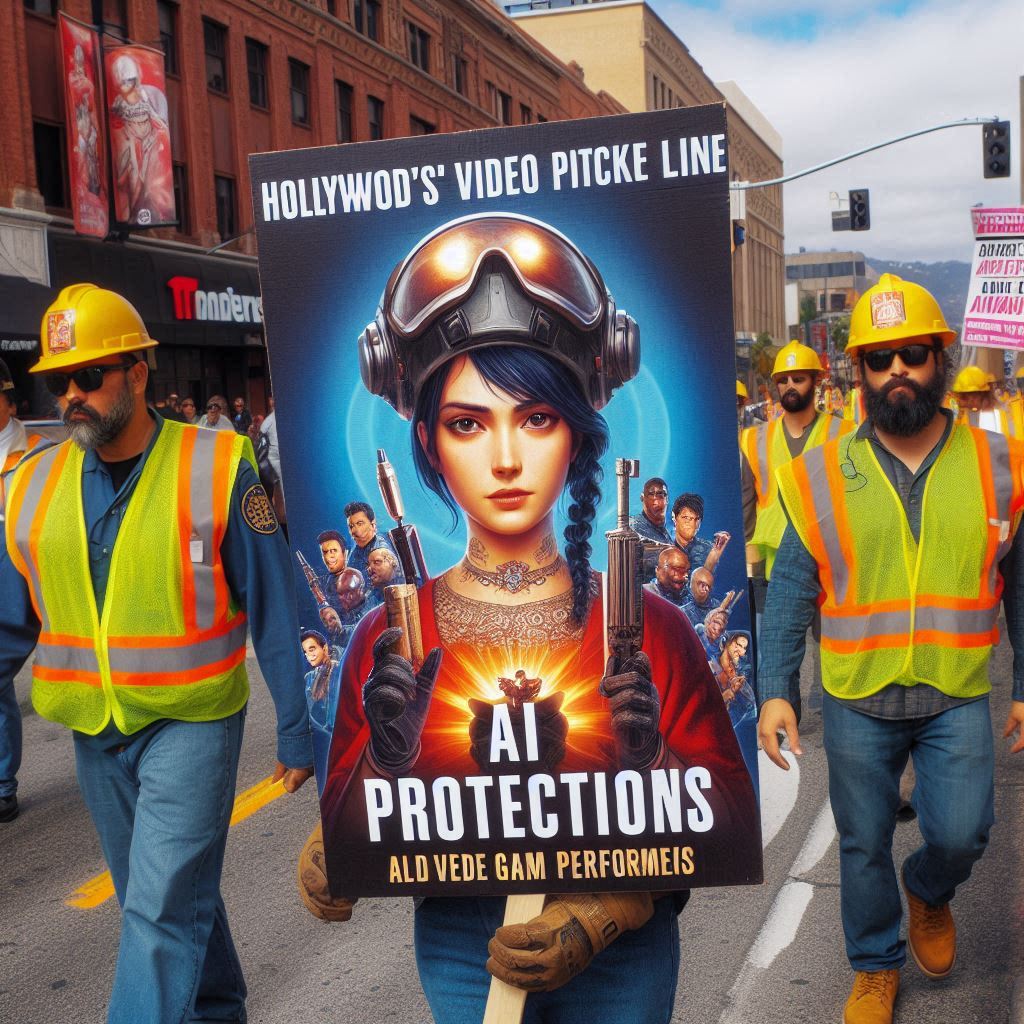
Hollywood's video game performers have staged a significant protest at Warner Bros. Studios, advocating for better protections against the unregulated use of artificial intelligence (AI) in their industry. This demonstration marks the first major labor action since game voice actors and motion capture workers voted to strike last week.
The strike follows over 18 months of stalled negotiations with major gaming companies, including Activision, Warner Bros., and Walt Disney Co., over a new interactive media agreement. Central to the dispute is the issue of AI, which the union argues poses a critical threat to performers by enabling the replication of their voices and movements without consent or fair compensation.
Union leaders have expressed concerns that the proliferation of AI technology could lead to digital replicas of performers being used without their approval or adequate payment. They argue that AI represents an “equal or even greater threat” to video game performers compared to its impact on film and television, due to the ease of creating convincing digital reproductions.
Audrey Cooling, a spokesperson for the video game producers, responded by stating that companies have proposed AI protections and significant wage increases for SAG-AFTRA represented performers. Cooling emphasized that the companies have made efforts to ensure that performers receive consent and fair compensation if their digital replicas are used.
However, SAG-AFTRA’s negotiating committee highlighted a key point of contention: the definition of who qualifies as a “performer” under the collective bargaining agreement. SAG-AFTRA Chief Contracts Officer Ray Rodriguez noted that some studios do not consider all movement performance creators to be covered by the agreement, treating some physical performances as mere “data.”
The union has been negotiating with a consortium of video game companies, including Activision Productions Inc., Blindlight LLC, Disney Character Voices Inc., Electronic Arts Productions Inc., Formosa Interactive LLC, Insomniac Games Inc., Llama Productions LLC, Take 2 Productions Inc., VoiceWorks Productions Inc., and WB Games Inc.
The video game industry, which generated nearly $184 billion in revenue in 2023, is projected to reach $207 billion by 2026, according to forecaster Newzoo. Despite the financial success of the industry, resolving the AI protection issue remains a significant hurdle in the ongoing negotiations.
Cooling expressed the companies’ commitment to reaching an agreement, stating, “We want to include SAG-AFTRA-represented performers in our productions and will continue working to resolve the last remaining issue in these negotiations.”
The protest and ongoing strike underscore the growing tensions between video game studios and performers over the future of AI in the industry.